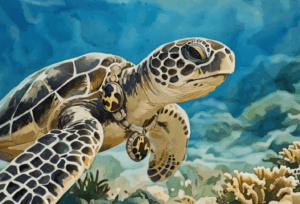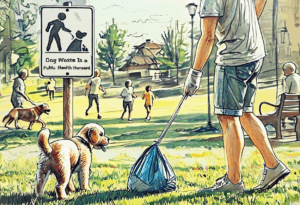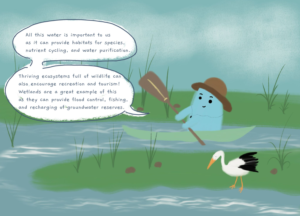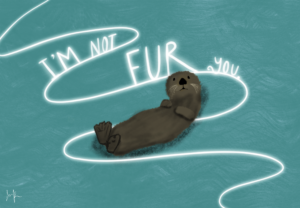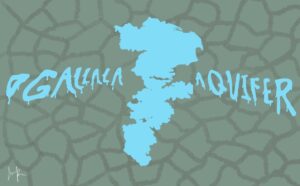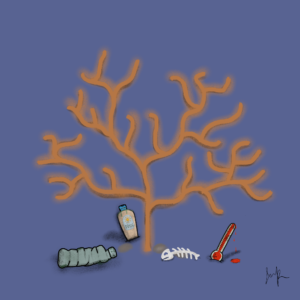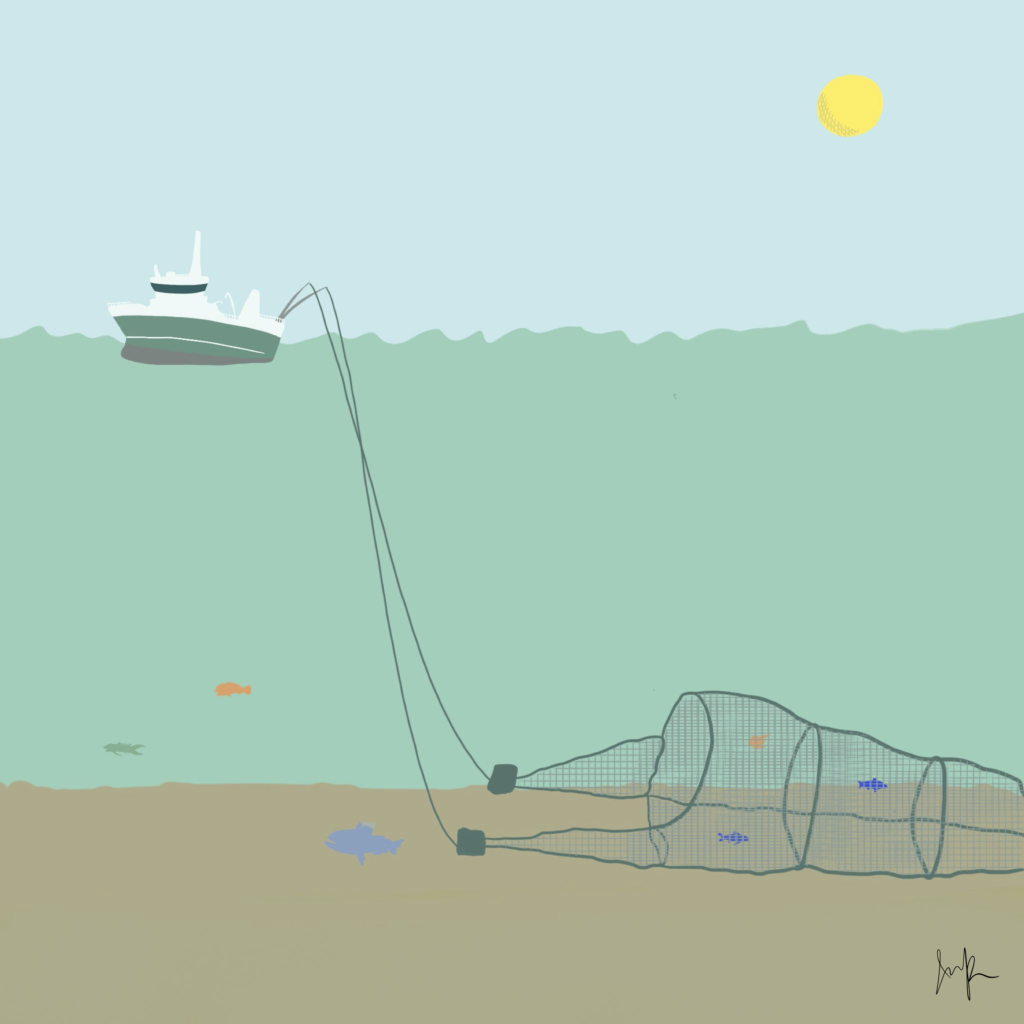
Illustrated by Julianne Park. All rights reserved.
“It turns out that over 437 million tonnes of fish, worth about US $560 billion, have been dumped back in the ocean over the past 65 years,” from bottom trawling, according to Karl Gruber in his article, “US $560 Billion of Wasted Fish over the Past Half Century”. The lives of millions of fish were paid without a price. In recent years, we have been striving for an ecological and more eco-friendly planet. Yet, we have allowed such a gruesome and destructive practice to exist up to this day.
So what is bottom trawling?
Bottom trawling is a fishing technique that uses a large net attached to the back of a ship, weighted down with special equipment to keep the net on the seafloor. Oceana explains, in their article “Bottom Trawling: Images“, that bottom trawlers can “drag over a half-acre swatch of seabed with one pass” and the “largest of deep-sea bottom trawling ships— ‘supertrawlers’—are 450 or longer (the length of 1.5 football fields)” (“Bottom Trawling: Images”).
The heavy equipment that trawlers drag isn’t very ocean-friendly. The nets and weights effectively flatten the ocean bottom, knocking everything in the way, including coral reefs, aquatic plants, and the natural ocean floor. As stated in the Oceana article, “Bottom Trawling“, as a result of the disturbance of bottom trawling, nearly “90 percent of a coral colony perishes, and up to two-thirds of sponges are damaged” (“Bottom Trawling”). This unsustainable fishing practice destroys marine ecosystems like coral reefs. Recovery is almost impossible after the effects of bottom trawling.
Aside from habitat destruction, however, another serious problem lies deeply embedded in this practice: bycatch. Bycatch is an undesired organism caught as a result of commercial fishing. When bottom trawlers drag their enormous nets across the seafloor, not only do they destroy the coral, but they also trap objects larger than the net’s mesh toward the belly of the net. And most of the time, these objects are alive. The Food and Agriculture Organization(FAO) suggests in their paper, “A Global Assessment of Fisheries Bycatch and Discards,” that “97% of the shrimp bycatch is discarded, producing over 4 million tonnes of waste fish” (Alverson). Millions of fish, sharks, turtles, sea mammals, rays, and aquatic plants are caught, only to be dumped back into the ocean. These organisms often suffer or die from the injuries and impact of trawling.
Now marine life is not alone. People are also impacted by bottom trawling. Overfishing depletes the fish supply of local fishing communities, which results in the loss of income and jobs. Destroying coral reefs and unsustainably catching lots of fish are also damaging to the tourist industry.
The fishing industries that use bottom trawling, despite their numerous detrimental consequences, have been able to expand with no signs of slowing. The continuation of this unsustainable practice will have tragic consequences not only for the ecosystems of the ocean but also for the consumers.
What will happen when there are no fish?
Bottom trawling affects you.
There is no time. There is no ten years later.
With our voice, we can help ban bottom trawling and other unsustainable fishing methods.
Every voice counts.
You can help by sharing the link to this article, signing petitions, writing to legislators or officials, educating yourself and others, and reducing your fish and seafood intake.
Together, we can ban bottom trawling.
Petitions:
- https://www.greenpeace.org/aotearoa/act/open-letter-for-oceans-protection/
- https://www.change.org/p/u-s-senate-ban-bottom-trawling
- https://www.change.org/p/pres-rodrigo-r-duterte-stop-bottom-trawling-in-the-philippines
- https://www.change.org/p/u-s-fish-and-wildlife-service-make-a-law-to-ban-bottom-trawling
- https://www.change.org/p/environmental-protection-agency-say-bye-bye-to-bottom-trawling
Works Cited:
“Bottom Trawling: Images.” Oceana Europe,
europe.oceana.org/en/eu/our-work/responsible-fishing/dirty-fishing/bottom-trawling/images.
A Global Assessment of Fisheries Bycatch and Discards, www.fao.org/3/t4890e/t4890e00.htm.
Gruber, Karl. “Time To Change A Damaging And Wasteful Fishing Practice.” Particle, Particle,
12 June 2018, particle.scitech.org.au/food/us560-billion-of-wasted-fish-over-the-past-half-century/.
The Environmental and Social Impacts of Illegal Trawling …
ejfoundation.org/resources/downloads/When-Fishing-turns-Deadly-ok.pdf.
The views and opinions expressed are those of the authors and do not necessarily reflect nor represent the Earth Chronicles and its editorial board.
